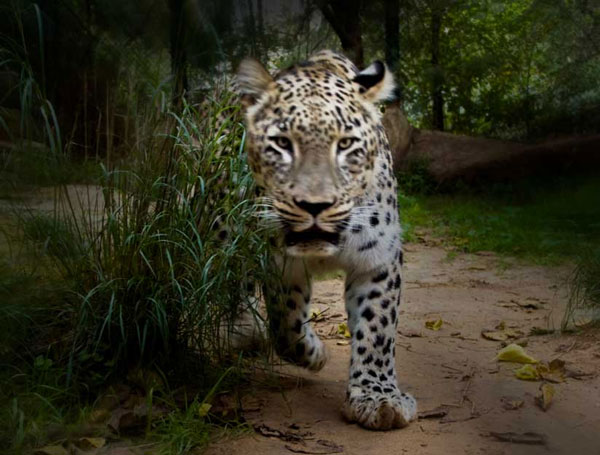Why do many wild animals like human blood?
Recent killer reports have shown that circumstances can push predators "hunters" in nature to taste to humans.
Some dangerous predators can become mass murderers in the right conditions, animal experts warn. The latest incident is a jaguar in Nepal that attacks and eats at least 15 people in the past 15 months.
'It is impossible to rule out the possibility of some animals learning how to attack humans , ' expert George Burgess commented on Discovery News. As in the Nepalese case, it is possible that the panther has craved for the salty taste in the blood, leading to a series of tragic deaths in the region.
Concurrent with Mr. Burgess, Nepal Dhakal National Park and Wildlife Conservation Director believes that, as soon as newspapers and species of large cats come into contact with human flesh, it will be very difficult to prevent them or tie they stop hunting.

A Nepalese wild leopard has eaten at least 15 people, including a 4-year-old boy.
'Because human blood has more salt than animal blood, once they have tasted it, they will no longer like the blood of traditional prey like deer,' Dhakal commented on CNN. Of course, the "thirst" of human blood will require them to go through a process of learning skills and gaining hunting experience. This would be impossible if predators can't often face 'food sources'.
For large leopard species, they used to only attack cows, sheep and other animals. Very rarely do they attack people. Until now, Burgess only knew of two cases where sharks attacked people repeatedly. Both cases happened in the waters off Egypt, but when investigating the cause, people found themselves the indirect culprits.
At that time, ships from Australia and New Zealand were carrying live sheep to Egypt. The dead sheep on board were all thrown onto the deck. Sheep waste is also scrubbed right on the deck. The result is a streak of scent stretching from New Zealand to the Red Sea.
A hammerhead shark and a mako shark seem to have swept along this scent to a low-lying area often filled with swimmers. Because there are no sheep and other prey to eat meat, they turn to attack people.
"It is clear that sharks or predatory animals rarely attack humans, but this is entirely possible ," Burgess said.
Although it does not always appear at the beginning of the food chain in the animal world, Proconsul, an ancient ape is an ancestor of both modern and chimpanzees, once a favorite of many species. hunt. Biologist Kirsten Jenkins said she observed a lot of teeth marks left on the fossil of the proconsul gibbons, an evident evidence that predatory dinosaurs and reptiles have eaten gibbons.
Earlier this year, fossils of a giant horned crocodile named Scientific Crocodylus were discovered next to the remains of Australopithecus, a distant relative of extinct humans. Researchers suspect that Crocodylus regularly considers humans to be food.
- The link between human milk and wild animal milk
- Unexpected truth about beasts sucking blood from cattle
- Photography: 'Talking eyes' of wild animals
- The 'demons' suck the blood of scary people
- Successfully developing blood from human skin, opening a new era for medicine
- American wild boar 'invades' Mexico
- 7 differences between animals and wild animals
- Why did Australia destroy 2 million cats?
- Fascinating wild dogs with lovely looks, personality like wolves
- Strange tragedy of children living with wild animals
- Photos of the 2015 Comedy Wildlife Photography Award
- Can treat Alzheimer's with ... human blood
 Animal 'suffering' after hibernation
Animal 'suffering' after hibernation Why do goats climb well?
Why do goats climb well? Scientists were surprised to see chimpanzees eating turtles
Scientists were surprised to see chimpanzees eating turtles Giant catfish died deadly due to drought in Thailand
Giant catfish died deadly due to drought in Thailand